Written by: Rohan Prabakaran
Every home is a haven for numerous insects & pests like ants, roaches, flies, and more. Spiders get rid of these pests, so your home isn’t overrun by them and stays regulated. Spiders also eat each other regularly, which keeps their population in a sustainable form. Long-legged cellar spiders are even known to attack black widow spiders, which are dangerous to humans as they possess life-threatening venom.
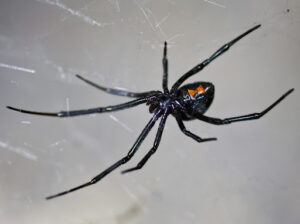
Though spiders have venom, only a few types are dangerous and very rarely threatening. The black widow venom results in the symptoms of nausea, muscle aches, and potentially death, but scientists have found other medicinal benefits from the venom. Research on the effect of venom on cancer cells looks promising and seems to be a building block that can be vital to fighting cancer as a whole. The Fraser Island funnel-web spider has venom with a molecule that delays the repercussions of a brain stroke. These creatures could also help us develop a more effective method of eliminating pests. Vestaron, a biotech company, has spent numerous years creating a “biopesticide” established on funnel-web venom.
https://www.youtube.com/watch?v=SDLbFowy3A0&ab_channel=TED
(Ted Talk on Secrets of Spider Venom, very informative)
In ancient times, Greeks and Romans used spider webs to dress wounds. Why? Silk is protein-based, biocompatible, and avoids adverse reactions. Today, scientists are continuing to explore the potential in wound care. A team manufactured synthetic spider silk “bandages” and included an antibiotic component. Spider silk has more to offer. After examining the real thing closely, scientists are experimenting with lab-made silk that could be utilized in bullet-proof clothing, parachutes, nets, and more. If producing this silk on a large scale is plausible, it could replace Kevlar’s production and usage. It’s a mind-blowing fact that spider silk is inch for inch stronger than steel. Spiders do not usually play well with others of their kind, a stark hindrance. However, scientists have recently been combining spider genes into silkworms. As a result, these worms can spin spider-like silk as well.
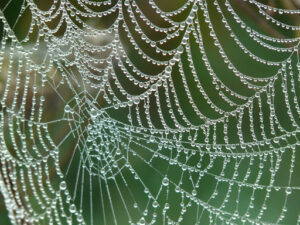
The diverse population of pests like aphids and caterpillars disturb the growth and the yield of crops. Spiders eliminate these pests and keep the harvests healthy and consumable. Spiders also assist many smaller-scale gardeners (*take notes viewers), especially those committed to growing organic food. Rather than depending on harmful chemicals for pest control, you should allow spiders to control the moths, mites, aphids, weevils, and other bugs present in your garden. Garden creatures (like ladybugs and birds) also consume garden pests, but studies prove that spiders are the most effective out of them all. Insects often carry harmful diseases to civilization. Fleas, flies, and cockroaches can spread the plague, typhoid, cholera, and more. Mosquitoes spread illnesses (like malaria) that kill much more people each year than any other animal.
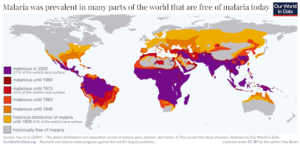
Spiders’ top predators include lizards, birds, and fish. In desert climates, spiders are valuable and sought-after food for mammals. Humans eat spiders, as well. They are a delicacy in places like Cambodia and not an essential food source. However, increasing levels of food insecurity could result in the consumption of spiders being more common, however gross it might seem initially.
https://www.youtube.com/watch?v=0B5GAlD9VUk&ab_channel=FoodNetworkUK
(Gordon Ramsay proves the tradition in Cambodia is not a Hoax)
If spiders vanished, it would set off a ripple effect of issues that would harm and dismantle the world as we know it. Some species are terrestrial, living on the ground, while others are arboreal, living in trees. Beyond this distinction, they have also displayed a penchant for living in far-flung climates and habitats, from tropical forests to ice-cold caves. While some spiders are social, most are solitary and interact only to fight or mate.
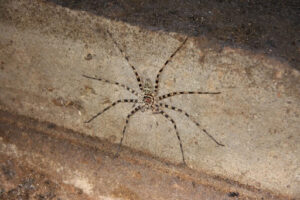
Though some spiders may find their way into your home, they will consume other insects that may be inside as well. Being scared is a normal response, and there are a few types of dangerous spiders, including the black widows and brown recluses. Most spiders species generally prefer to avoid contact with people and stay isolated. Even in instances of spider bites, healthy adults can usually survive without impactful consequences. Just because you are not keen on seeing any inside your home does not mean they do not serve a purpose.
https://www.youtube.com/watch?v=RW4pEHrav2A&ab_channel=MedicalCentric
(What you must do after a Spider Bite)
There is a lot not acknowledged about spiders and their venom, and with so many species around the world, there is no telling what kind of potential spider benefits we may not yet be aware of. Most of the benefits take place outside of your home, so having your home spider-free is still not a bad thing. If you are witnessing an uptick in spiders in your home, it might be because of another pest conflict in your household.
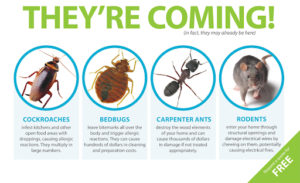
Citations
DeMarino, Nicholas. “The Importance of Spiders to an Ecosystem.” Pets on Mom.com, 19 Nov. 2020, animals.mom.com/importance-spiders-ecosystem-6242.html.
Disease Control and Prevention, Centers for. “Venomous Spiders.” Centers for Disease Control and Prevention, Centers for Disease Control and Prevention, 31 May 2018, www.cdc.gov/niosh/topics/spiders/.
MacDonald, Mike. “Why Are Spiders Important?” Rove Pest Control, 14 Sept. 2016, www.rovepestcontrol.com/why-are-spiders-important/.
Peng, Xiaozhen, et al. “Cytotoxic and APOPTOTIC Activities of Black Widow SPIDERLING Extract AGAINST HeLa Cells.” Experimental and Therapeutic Medicine, D.A. Spandidos, 27 Apr. 2017, www.ncbi.nlm.nih.gov/pmc/articles/PMC5450530/.
Soken-Huberty, Emmaline. “10 Reasons Why Spiders Are Important.” The Important Site, 21 May 2020, theimportantsite.com/10-reasons-why-spiders-are-important/.
Stadler, Rita. “Dangerous Spiders – Which to Be Careful of in Your Home.” Earthkind, 14 Apr. 2021, www.earthkind.com/blog/dangerous-spiders/.

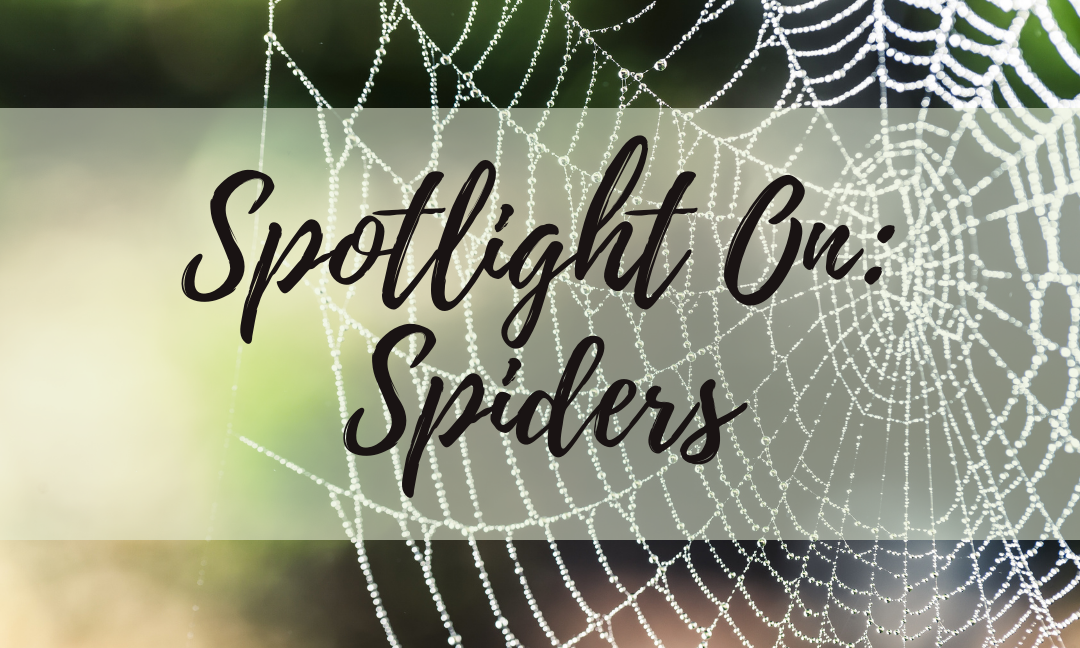
When someone writes an piece of writing he/she keeps the thought of a user
in his/her brain that how a user can understand it.
Therefore that’s why this paragraph is outstdanding.
Thanks!